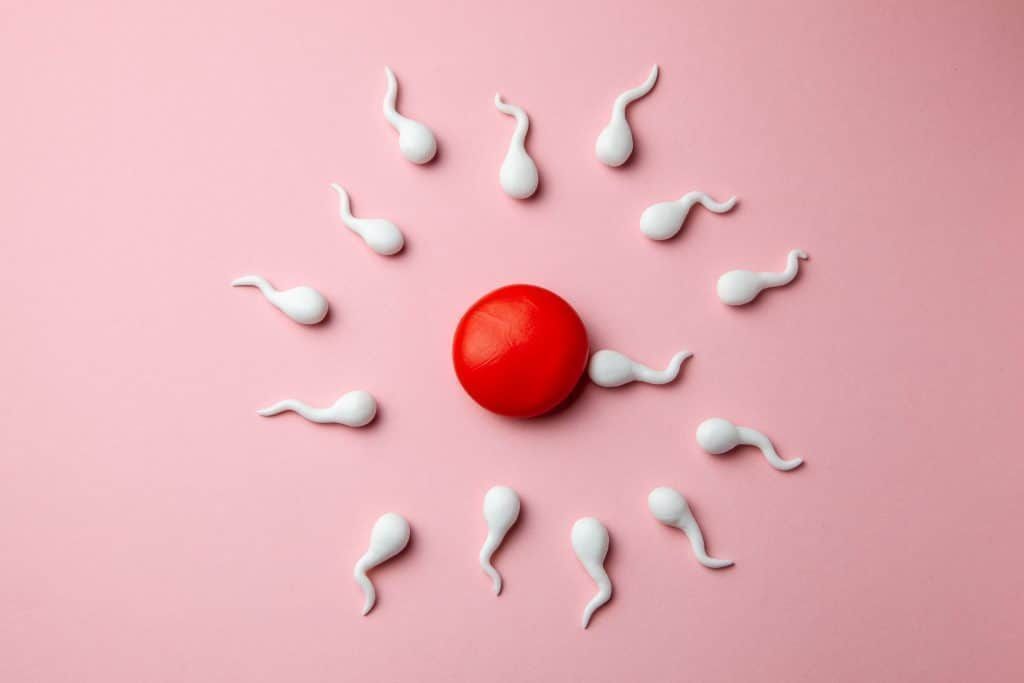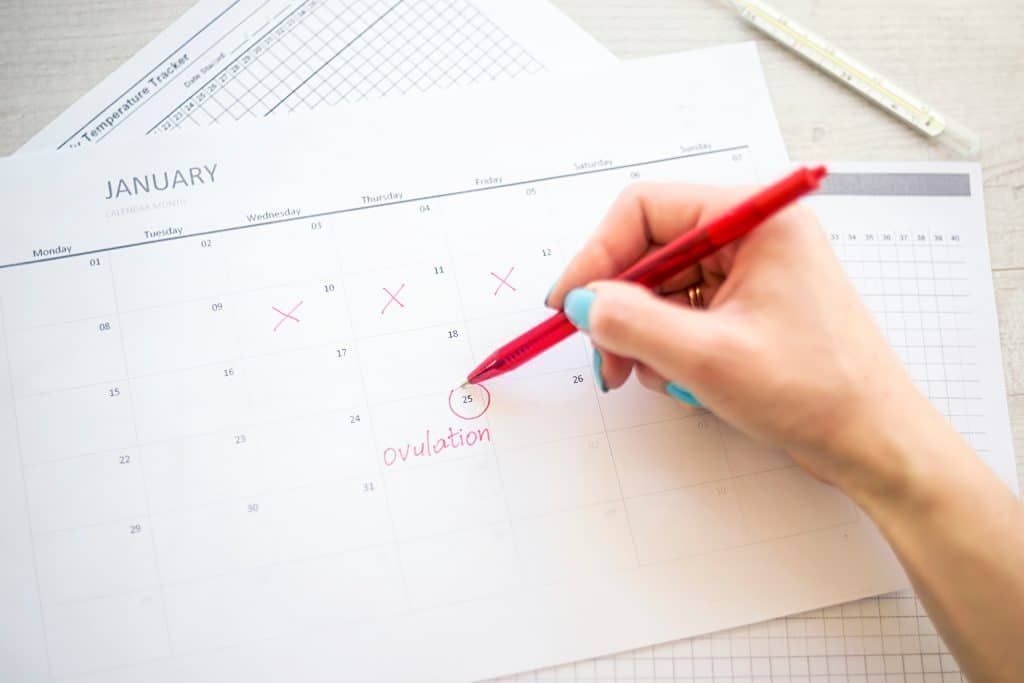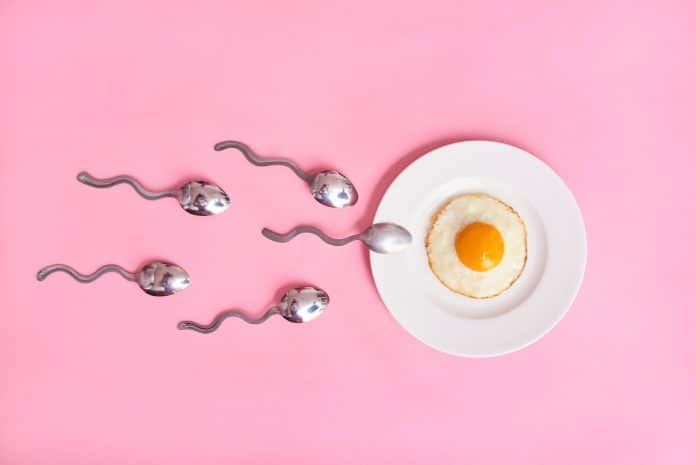What is ovulation ?
L’ovulation is the central phase of the menstrual cycle of the woman. This is the moment when the follicle releases its egg which will wait for a possible spermatozoon in the uterus. But how can ovulation take place? ? What is their role ? How to put all the chances on your side to get pregnant ? Missions Santé answers all your questions !
What is the role of ovulation ?
Ovulation is therefore this stage of the pregnancy menstrual cycle that will allow to give life to a future baby. But to understand exactly its role in the cycle of life, let’s start at the beginning ..
Every month, 5 to 15 primordial follicles (Some individuals focus on their emotions, others focus on facts, or react to a particular situation, such as the one we have in stock, which begins to mature in the ovaries during the ovarian cycle. They are then called primary follicles and at each stage of growth (which will last between 5 and 6 months), they take the name of secondary follicles, then tertiary to become De Graaf follicle, in the singular, because the organization selects the best of them each month.
Inside these follicles is our oocyte (or ovum) that grows along with its follicle.

All this work is stimulated by a hormone secreted by the pituitary gland: thefollicle-stimulating hormone (or FSH). As the follicle develops, it produces estrogen and it is when estrogen levels peak that the follicle is mature.
Once arrived at maturity, the brain starts a discharge ofluteinizing hormone and the Graff’s follicle releases the egg: ovulation !
Once the ovum is released, it is sucked up by the fallopian tubes which will transport it to the uterus if it is fertilized. The egg will wait 24 hours in the fallopian tube for a sperm to fertilize it. If this is not the case, the egg will begin to disintegrate, the level of sex hormones will drop and the uterine lining will peel off: this is the beginning of menstrual periods.
During this time, the work of the follicle continues, since after releasing the egg, it has transformed into a gland called the ovary corpus luteum. This will produce progesterone and estrogen in sufficient numbers to continue the pregnancy until the placenta takes over. If the egg is not fertilized, the corpus luteum disintegrates and it is the corpus luteum that causes the fall of sex hormones.
When ovulation occurs in women ?
Whether you want to start a baby or avoid it (especially if you do not use contraception), it is important to be able to calculate your ovulation period.
Although the menstrual cycle can be very irregular, ovulation always takes place 14 days before the beginning of the period. To calculate your ovulation day, you must therefore calculating the menstrual cycle.

Unfortunately, we never know exactly how many hours you’ll have to wait before you can have your baby How long your period lasts and you will have to note on a calendar your first day of menstruation for a few months, and then make an average.
To help you situate yourself in your cycle, here are the different phases of the female cycle :
- Menstrual periods: they last between 3 and 5 days.
- The follicular phase that follows menstruation lasts between 13 and 14 days.
- Ovulation, which lasts 24 hours.
- The luteal phase, which lasts until the day before your period. This is the last stage of the ovarian cycle and it lasts between 14 days.
So, if you have a regular 28-day cycle, your ovulation will occur on day 14. But, if you have a long cycle of 35 days for example, then you will ovulate on the 21st day after your period starts (35 – 14 = 21).
It is very difficult to have an exact date, especially since, from one cycle to another, it is sometimes not enough for it to be deregulated or delayed (stress, illness, too much sports practice…).
What are the signs of ovulation ?
As the calculation of the date of ovulation is very approximate, it may be interesting for you to learn to recognize the symptoms related to ovulation.
Here are the different signs that can alert you:
- A rise in your body temperature (it is a little higher after ovulation).
- Transparent vaginal discharge: this is cervical mucus which, to facilitate the ascent of spermatozoa from the vagina to the fallopian tubes, becomes more abundant and clearer (it resembles the white of a cooked egg).
- A stronger libido.
- Pain in the lower abdomen around the ovary that releases the egg.
- Sometimes bloating, tense breasts, even irritability.
Good to know The pain felt in the lower abdomen can be on the left or the right side. The ovaries generally work in alternation and if one month it is the left ovary that prepares the egg, the next month it is the right. However, sometimes an ovary can work for several months in a row !
What are the chances of getting pregnant during ovulation ?
To put all the chances on your side, you need to know your fertility period. Often confused with ovulation, the fertile period is the time when you are likely to become pregnant.
This time period starts 5 days before your ovulation and ends when the 24 hours are over. Why 5 days ? Well, that’s the number of days that sperm can survive in the female reproductive system.
You should also know that on average 20% of ovulatory cycles result in pregnancy. Especially since the age factor impacts your chances: beyond the age of 35, a woman’s fertility decreases very quickly, to be almost nil from the age of 45.
To finish it is very rare to have a perfectly regulated cycle and the absence of ovulation does not present a problem if it is not frequent. However, a cessation of menstruation If you have had a problem for more than three months (except for pregnancy and menopause), it may hide a more serious problem. Do not hesitate to consult a doctor or a gynecologist !

